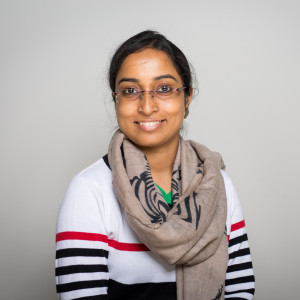Swati Chakraborty
Biography Narrative
Dr. SWATI CHAKRABORTY is a Visiting faculty (Assistant Professor), at the Institute of Legal Studies and Research, GLA University. She is also an Assistant Professor of Human Rights and Women Studies in Team Lease Ed Tech (Formally known as Schoolguru Eduserve Pvt. Ltd.) Dr. Chakraborty is a Writing Fellow, at COMPOSE, Universitas Islam Internasional Indonesia. She is an International Fellow of KAICIID in Lisbon, Portugal. She has done her Ph.D. in Human Rights from the University of Calcutta with the thesis on “RIGHT TO EDUCATION: A study on tribal women of rural West Bengal”. She was attached to National Human Rights Commission, India as a Research Consultant. She is the Founder of “Webplatform4Dialogue” with a series of webinars, talks, and publications.
Dr. Chakraborty had good teaching expertise as Lecturer at The English College (School of Management), Calicut, Kerala her special lectures are on Human Values and ethics to Management studies and Dignity and Rights. She is also a member of the executive council at the National Centre for Inclusive Growth and Development Research (NCDR), Mysore. Member of Review Committee of Raj Rajeshwari Journal of Psychological and Educational Research Also she is the editor of books like “Dynamics of Dialogue, Cultural Development, and Peace in the Metaverse”, “Handbook of Dialogue and Development: India-China-EU”, Handbook of Human Rights and Tribal Studies”, “Handbook of Social Media for Digital and Social Inclusion”, “TRIBAL DEVELOPMENT”, “Gender Identity and Roles in India: Issues and Challenges”, “Multidisciplinary Handbook of Social Exclusion and Human Rights” and “Handbook of International Relations: Issues of Human Rights and Foreign Policy Vol. I and Vol II”. Dr. Chakraborty has a wide range of international connections with her network through different seminars, conferences, and workshops.
Interreligious Activities and Initiatives
WebPlatform4Dialogue
Main Publications
- Dynamics of Dialogue, Cultural Development, and Peace in the Metaverse : Dr. Swati Chakraborty (Editor) , IGI Global , USA , 2022 , https://www.igi-global.com/book/dynamics-dialogue-cultural-development-peace/298308

